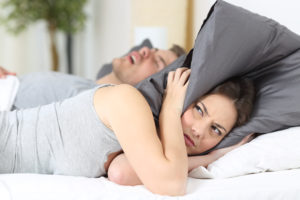 Are you groggy and tired even though you think you’ve had a good sleep? If that’s the case, you may have sleep apnea.
Are you groggy and tired even though you think you’ve had a good sleep? If that’s the case, you may have sleep apnea.
Sleep apnea is a common sleep-related breathing problem. It leaves sufferers unconsciously gasping for air during sleep, making it nearly impossible to achieve quality sleep. The condition is associated with high blood pressure, heart attack, and stroke risk.
Advertisement
New research is showing that activity might reduce the risk.
Activity is associated with several positive health outcomes, and previous research has uncovered that there is a link between more activity and a lower risk for sleep apnea. This new study, however, shows just how much exercise might help.
Looking at 150,000 participants in the Ontario Health Study, researchers found that walking at a moderate pace for as little as 20-minutes per day could cut the risk of developing sleep apnea by 10%. Eight minutes of intense exercise had the same result.
Seven percent of the participants were diagnosed with sleep apnea. They were also found to live a more sedentary life than those without it, sitting for an average of 4.4 more hours per day.
Because the study is observational, it does not prove that activity influences sleep apnea risk. It’s possible, for example, that people with OSA are walking less because they are fatigued from poor sleep.
Advertisement
In any event, this news does bode well for activity. It’s pretty difficult to separate activity from positive health outcomes, particularly those that are associated with heart health and weight. Sleep apnea is not entirely determined by lifestyle factors, but they do play a role.
Body fat is a known risk factor for sleep apnea, and activity is a component of weight management. Although activity will not necessarily lead to weight loss without proper nutrition, it can be used to create a caloric deficit. This may influence sleep apnea risk.
If you’re not feeling focused, energized, and refreshed when you wake up, you might want to talk to a sleep specialist. But boosting activity and adopting a healthy diet could help too.
